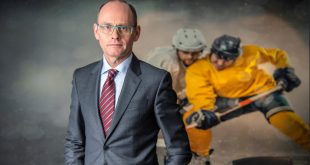SBC Webinars headed over to the Nordic region to discuss the potential regulatory overhauls expected to take place in Sweden and Finland in the not so distant future.
In collaboration with Finnplay, the iGaming platform provider in the Nordion region, SBC Webinars presented ‘The Nordic Challenge, Licensing and Regulation in the Nordic Region’. In this one-hour discussion, experts within the sector delved deeper into major changes in the Nordic gaming space, which could see both open up for B2B and B2C licences.
Hosted by Scott Fulton, Media Marketing Manager at SBC, the webinar kickstarted in Sweden, which will see its licence application process open on 1 March of this year, a procedure that Elvin Sabibi, Junior Partner at Nordic Gambling, described as ‘rather straightforward’.
While the actual licence will come into effect from 1 July, 2023, Sabibi raised a warning to any B2B supplier looking to operate in Sweden and keep providing B2C operators its software – a licence will need to be obtained before it comes into play at the beginning of July.
He explained: “The application itself is more of a paper product. You fill out the application form and a short description of the gambling software that you’re providing and your business basically.
“The SGA (Swedish Gambling Authority) has explained they expect a lot of licence applications so for anyone listening, good advice would be to get ready to submit your application on 1 March because the Authority themselves has said they expect between 200 and 300 applications and considering the scope of the B2B licence, we believe it is quite accurate.
“If you’re a B2B supplier outside of the EU, you’ll also need a local representative, which Nordic Gambling provides.”
Lauding Sabibi’s summary of the process, Minna Ripatti, Founding Partner, Attorney at Law at Legal Gaming, praised the work and communication from Spelinspektionen but raised an operator concern, in the form of a question to Sabibi, with some believing that the B2B licensing that has been drafted “seems rather wide”.
Relaying this concern back to Sabibi, the Junior Partner pleaded with both guests on the webinar and viewers to “please don’t shoot the messenger!”
Detailing Nordic Gambling’s assessment, he stressed that most B2C operators will also be included in the B2C licence scope.
He explained: “We expect that because the regulation reads ‘modified gambling software’, which we know for a fact most operators do, they will also need to apply for a B2B licence.”
However, Sabibi did offer a glimmer of hope to concerned operators in the form of an ‘umbrella licence’, which was raised in the SGA’s B2B conference at the backend of 2022.
“Initially it was outside of the scope but the SGA received a lot of feedback during the conference that an umbrella licence would really help the supply chain,” Sabibi continued. “We’re hoping this type of licence will come into effect but I don’t want to give any guarantees or false hopes so let’s wait and see and fingers crossed!”
Moving away from Sweden and to one of its three bordering neighbours, Finland, the speakers evaluated how the country could witness a monumental shift from its current monopoly model to a licensing system.
Addressing the topic first was Ripatti who pinpointed a statement from Veikkaus, the Finnish government-owned betting agency which holds a monopoly in the country, last year that stressed Finland’s gambling authority needs to consider changing the system so everybody comes under the same regulation, if a licensing system was the direction the country was willing to take.
From that moment, Ripatti noted that the discussion was heightened on whether the monopoly system currently in play is still a suitable model in Finland.
She stated: “In the beginning of January, there was a study group established to investigate potential changes, like the legislative marketing perspective, if Finland was to move to a licensing system.
“This is significant! Never ever in Finland have they really investigated a licence module as an option. Finland is now really facing a phase where it is truly considering a licence module instead of a monopoly.”
Adding to Ripatti’s point, Jaakko Soininen, Managing Director at Finnplay, expressed that the change in preference has come from a political shift that, in his words, has been “really rapid”.
Revealing that just over a year ago, most political parties in Sweden were pushing for the monopoly method, it was only in the second half of the fourth quarter last year that all these parties had now shifted and were pushing for a more licensed model.
Soininen commented: “Last week, I was listening to representation from a few politicians and every party basically said that, even though we don’t have an official statement on the licensing model in practice, their views have changed. So everyone is more in favour of licensing.
“In Finland, the way the political system works, they’ll now have the elections. The parties and government will then write out its programme and all the major developments for the next four years has to be in that programme for it to go through.
“That’s why this study group is important because they will provide background information for this government’s approach and I believe it is widely expected that in Finland the government approach will hold some type of statement in moving to a licensing model.
“I think it would be premature to hope for any type of timelines but maybe we can get some type of indication on when it will happen.”
Later on in the webinar, the attention turned to the hosting and technical side of a B2B licensing scheme. Addressing Kevin Roelofs, Chief Operating Officer at Shock Media, Fulton asked how he saw the requirements regarding server accessibility changing in regulated markets, as well as the technical set-up and maintenance challenges operators should plan for.
In response, Roelofs noted that, when it comes to accessibility, most of the focus is on the operator side, whilst with the regulators there is a ‘very specific’ focus on data integrity and those kinds of requirements.
Looking at what happened in the Netherlands, along with other countries, Roelofs added: “The basis that we’re working from, and the legislature is as well, is the ISO 270001, which is an international standard for the security of information. This is built upon legislation from a technical point of view.
“Things like login, tracking players, a flow of a player through an application, access management and back-up and recovery, those are focus points.
“There is a lot of overlap between countries that are looking at each other and, the Netherlands for example, were looking at what Denmark was doing with its Danish model.
“The main thing to be expected from Finland, as a guess, is probably that they will look at the Netherlands, Denmark and Sweden. From an operator point of view, they will be focused on availability, performance and security. That needs to be proven, so they will need the right certifications, the right audits and will need to understand the market.”
Adding to Roelofs comments, Soininen concluded: “The key takeaway here is that the technical set up can wait. The important thing is to prepare regulator states with what is needed from their point of view and leave enough freedom for hosting providers to implement set ups.”
The webinar also dived deeper into public sentiment and motivations behind the coming Finnish regulation, even more into Swedish B2C regulation and advantages and disadvantages of using public Cloud Service vs Private cloud.









